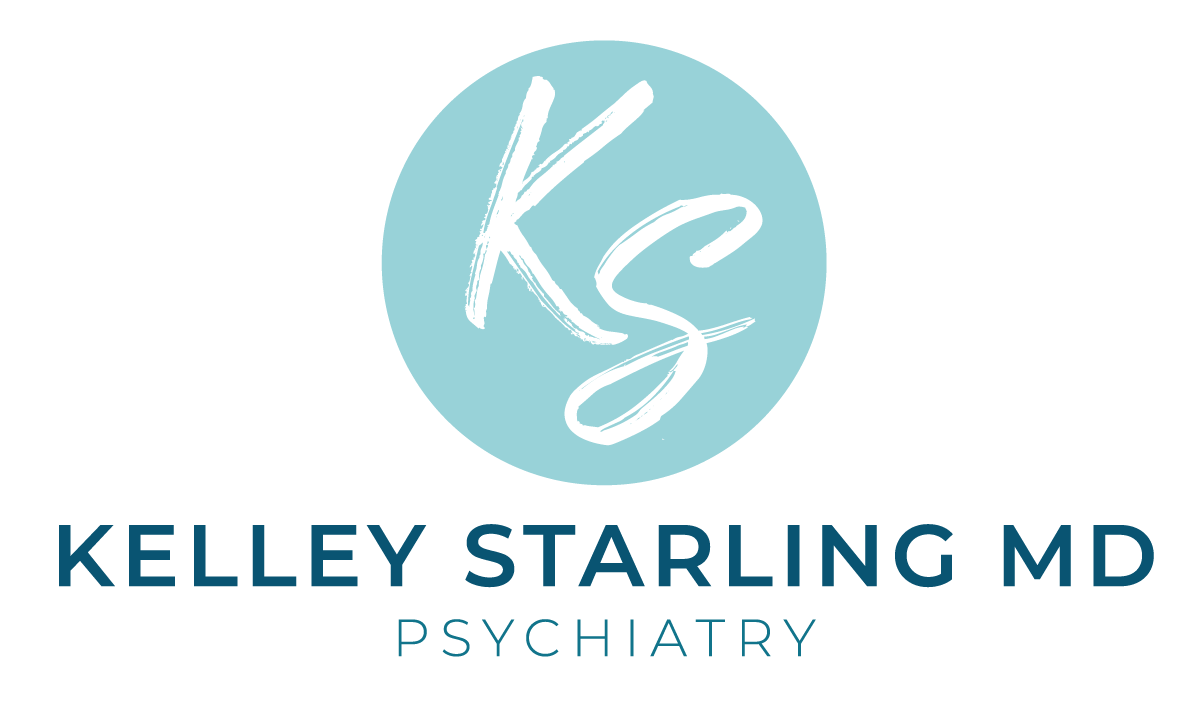Psychiatric Diagnostic Exam
Psychiatric Diagnostic Exam (Adult)
(90 minutes)
The initial Psychiatric Diagnostic Exam evaluates your specific concerns and needs and determines the most suitable treatment approach. During this session, Dr. Starling will take a comprehensive history and review any available past evaluations and rating scales. If necessary, interviews with collateral sources can be included based on your discretion. The initial appointment also serves as a crucial step in determining if an ongoing treatment relationship aligns with your needs and goals or if a referral to another mental health provider might be needed.
After the initial evaluation, Dr. Starling will provide a comprehensive assessment and discuss treatment options and recommendations tailored to your unique circumstances. Depending on your circumstances, Dr. Starling may recommend medical tests (e.g., blood work, MRI, or sleep study). With your consent, Dr. Starling may collaborate with other medical specialists (e.g., neurologists or cardiologists) and coordinate care with your therapist and primary care doctor as needed. In some complex cases, a follow-up appointment may be required before finalizing recommendations.
Psychiatric Diagnostic Exam
(Child & Adolscent)
(90 minutes)
During the initial Psychiatric Diagnostic Exam, Dr. Starling thoroughly and carefully assesses new patients using a biopsychosocial framework. This evaluation includes thorough interviews with both the parents and the child, a detailed exploration of symptoms, and a review of past psychiatric interventions. The initial appointment also serves as a crucial step in determining if an ongoing treatment relationship aligns with your family’s needs and goals or if a referral to another mental health provider might be needed. In some complex cases, a follow-up appointment may be necessary before diagnosis and treatment recommendations are finalized.
Dr. Starling encourages the presence of both parents (or guardians) for the first evaluation. If other family members are directly involved, their participation is welcomed, too. Collaboratively, Dr. Starling will review any available previous evaluations, such as psychoeducational, speech/language, or neurological reports. Dr. Starling may recommend medical tests (e.g., blood work, MRI, sleep study), consultation with other specialists (e.g., neurologists, cardiologists), or psychological testing when appropriate.
For children under the age of 12 years, the evaluation typically starts by gathering a detailed history from the parents, followed by an individual session with the child. This session may encompass interviews, drawing, and play therapy as needed. The evaluation process concludes with a feedback and recommendations session with the family.
In the case of adolescents and teens, the initial session often involves both the adolescent and parents together, fostering a collaborative approach. Subsequently, the adolescent has the opportunity to meet with Dr. Starling alone, ensuring a balanced alliance. This approach establishes trust with the adolescent and parents, allowing for open communication. It also provides a confidential space for adolescents to discuss sensitive matters. The evaluation process wraps up with feedback and recommendations involving the adolescent and parents.
This comprehensive evaluation process is a solid foundation for understanding and designing the best possible treatment path for your child’s well-being.
Request An Appointment
Start Your Healing Journey
Whether you’re seeking a psychiatric evaluation, exploring medication options, or engaging in talk therapy, contacting us is a pivotal moment where the healing journey begins.
